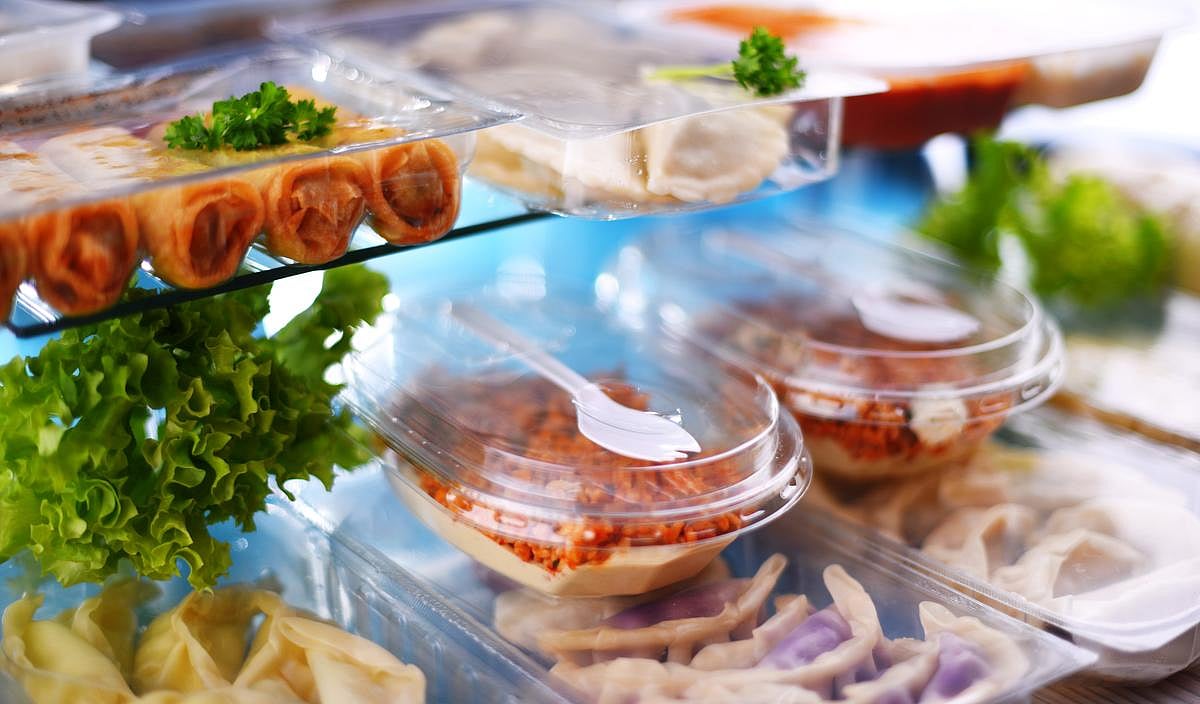Using the RefillRx mobile app? Then you will love our new, ENHANCED Sentry Drug Center mobile app.
Quickly request refills or login and manage your prescriptions on the go!
Available on both iTunes and Google Play.
Call or Visit for All of your Vaccination Needs!
Manténgase sano!

- Dennis Thompson
- Posted February 18, 2025
Student Athletes Don't Know How To Fuel With Food, Study Says
High school athletes often hit the field improperly fueled for the competition ahead, because they haven’t been taught important basics of nutrition, a new study says.
In surveys, teen athletes revealed a dramatic lack of knowledge about nutrition facts that could help them compete harder and recover better, researchers reported recently in the journal Nutrition.
“Their level of general nutrition knowledge and sport nutrition knowledge was very, very low,” researcher Jennifer Fields, an assistant professor of nutritional science with the University of Connecticut, said in a news release.
“They didn’t know how to eat a balanced diet for their overall health,” she continued. “Moreso, they didn’t know how to make proper fueling decisions for their sport.”
For the study, 44 teenage student athletes filled out the Abridged Sports Nutrition Knowledge Questionnaire, a survey designed to suss out how much a person knows about nutrition in general and eating for athletic competition in particular.
Overall, the students got only about 45% of the questions right, results show. They scored 58% on general nutrition knowledge and 35% on sports nutrition.
In particular, students were way off base when it came to the key nutrients they need to compete effectively, researchers said.
The teens thought they needed fewer carbohydrates and calories than is recommended, as well as far more protein and fat than necessary, the study found.
In truth, student athletes should be consuming more than half their daily calories as carbohydrates, Fields said. That’s a critical difference between the way regular students and athletes should eat.
“Carbohydrates are athletes’ best friends,” Fields says. “That is so contradictory to what a lot of social media tells us.”
In all, 2 in 5 athletes surveyed (41%) said that their sports organizations did not provide either access to a nutritionist or dietitian or nutritional information to help guide their eating choices, researchers said.
Athletes most often turned to family and friends (43%) or coaches (39%) to help better understand the best food choices, results show.
A lack of knowledge about nutrition was rated the most common barrier to eating healthy (37%), followed by a lack of energy or motivation (34%) and access to food (10%).
These knowledge gaps might be fueled by inaccurate info splashed across social media, Fields said.
“Adolescents in particular are just inundated with social media,” she added.
“High schoolers are on Instagram, TikTok, whatever it may be, getting preconceived notions about how their bodies should look, how they should eat, and how they should exercise," Fields said. "And many times, it’s really conflicting with how they should be fueling as an athlete.”
For example, intermittent fasting diets are trending on social media, and such an eating pattern can undermine athletic success, Fields said.
Student athletes need to be fueling consistently throughout the day to support both performance and recovery, she said.
“One of our biggest takeaways is simply the need for more general nutrition education and sports-specific nutrition education for these adolescent athletes,” Fields said. “If we can change the behaviors throughout these high school years, then they get to college and have a much better sense of how to eat for their health and to optimize their performance.”
More information
Johns Hopkins Medicine has more on eating right prior to competition.
SOURCE: University of Connecticut, news release, Feb. 11, 2025
